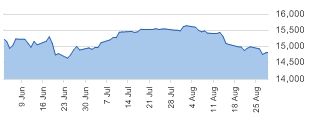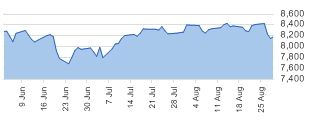
Coles has renewed its attack on the ‘effects test’. Picture Aaron Francis/The Australian
CUSTOMERS could pay more for their groceries if the federal government goes ahead with an “effects test”, says supermarket giant Coles.
Coles managing director John Durkan says the effects test could inhibit the ability of the big supermarket operators to offer discounts on groceries.
The effects test could also constrain investment by the large supermarket chains because they would have to seek legal advice on whether or not the investment would inhibit competition.
The federal government announced last week that it will implement an effects test, instantly riling big business.
The effects test will prohibit big companies from acting in a way that would have the effect of substantially reducing competition without any economic justification.
“I am concerned that under an effects test regime, companies like Coles will be less able to bring about cost decreases and therefore lower prices,” Mr Durkan said in an address to the American Chamber of Commerce in Australia on Wednesday.
“This is because another less efficient business may seek to argue that their inability to offer similar prices is somehow unfair.” Mr Durkan said an effects test could particularly hurt customers in regional areas.

Coles CEO John Durkan. Picture: Aaron Francis/The AustralianSource:News Corp Australia
Regional customers pay the same prices as customers in the bigger cities despite the fact that it costs more to get food to regional areas and to do business there.
An effects test could change the ability of Coles to treat all its customers equally no matter where they live.
Mr Durkan said neither the federal government nor the Australian Competition and Consumer Commission had been able to tell Coles if it would be allowed to sell bread, milk, nappies and baked beans at the same price in regional Australia as in the rich suburb of Toorak in Melbourne.
Mr Durkan said there were many shoppers who were not becoming wealthier and who struggled to afford even $150 a week to feed a family of four.
“That’s why it’s important for us to continue to lower and to continue to think about lowering prices,” he said.
Mr Durkan also said Australia’s system of penalty rates for working outside normal hours — such as double time on Sunday — needed to be changed because the high cost of wages was stopping some businesses from opening.
This especially hurt businesses trying to compete with online retailers.
Also, said Mr Durkan, it made little sense that a Coles worker doing a Monday shift between 8am and noon was paid differently to a worker doing a similar shift on a Sunday.



























